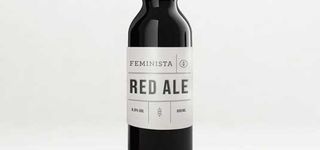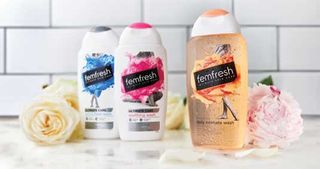How to master the art of feminism in branding
Alex Hamilton explains how brands can authentically align their goals with those of feminism.
The feminist movement has once again gathered momentum in recent years. From the first former First Lady running for President to OITNB's Matt McGorry's 'Free the Nipple' media storm; cinema championing female protagonists in Suffragette, Mad Max and Ghostbusters; while Patricia Arquette's powerful Oscar acceptance speech in 2015 brought equal pay into the spotlight. That same year, the banning of female genital mutilation in Nigeria was a profound step towards women regaining ownership of their bodies.
As landmarks continue to be made the world over and female confidence rises, the attraction to jump on the 'feminist bandwagon' is proving too good an opportunity to miss. For brands authentically aligning their goals with those of feminism, the reward can be powerful for both brand and consumer.
Positive outlook
Take for example Sport England's This Girl Can. The national campaign is powerfully effective, hitting an emotional chord whilst communicating its message of attainable health for women of all shapes and sizes loud, proud and clear.
Addressing the gender gap between women and men who do regular exercise, the multi-tiered marketing campaign inspires women to stop putting off going to the gym and empowers them to face their fears of being judged head on.

This Girl Can is one of the most successful campaigns of the year with a social reach that has exceeded 23 million and a canon of awards including Cannes Lions' Glass Lion, which recognises work that addresses issues of gender inequality or prejudice.
But now let's consider Virgin Media's 'Inspired' TV ad to launch its new broadband service. It features a girl embarking on a voyage of discovery, using her powerful Internet connection to search for historical female icons.
Celebrating women is all well and good, but we've got to question the relevancy that links broadband to feminism. While Virgin's intentions might be good, the execution is in danger of bringing out cynicism in consumers. It seems that Virgin is not actually joining in the feminist movement – rather riding on its coattails.
Brands need to realise consumers are becoming increasingly wise to brand spin; and lack of authenticity and pandering to feminist trends will rub consumers the wrong way. When faced with fourth wave feminism, a movement empowered by social media, inauthentic brands will experience a crippling backlash.
You only have to look at Bic's 'For Her' range, encouraging women to purchase pink, feminine stationary, coupled a few years later with its campaign telling women to 'look like a girl… think like a man', to recognise a brand so demonstrably off the mark when it comes to connecting with feminism.
So the question is: how does a brand do 'femvertising' without offending the very target audience it is trying to reach out to?
If a brand is going to connect with feminism, it has to do a lot more than simply introduce more women to its campaigns. Brands will need to evaluate their core principles and know what they stand for, to ensure that their use of feminism comes from an authentic place.
Their goals will need to align with those of the movement; whether its equality standing for all, lifting shame, dismantling the sexism embedded in our society, or all three, brands need to recognise that feminism isn't a trend – it's a social movement. This can be strategised in numerous ways, from utilising shock factor to subtly underpinning the brand's ethos by means of provoking a conversation.
Provoking conversation
Always' 'Like a Girl' campaign demonstrates the power in provoking a conversation. The ad centres on the negative associations surrounding the phrase 'like a girl', highlighting how sexism is so deeply embedded from a young age that we don't even notice our perceptions of girls as by nature weak and delicate.
The campaign sparks debate across both sexes, through inclusively featuring men alongside women in the ad; and encourages people to reconsider the empowerment rooted in being a girl.
Pantene's 'Sorry, Not Sorry' campaign also seeks to re-empower women. However rather than encouraging women not to apologise when an apology isn't solicited, it made women appear rude and catty, as superior to men.
Unlike Always, Pantene further distances the gap between men and women – an opposing ideal to feminism rooted in understanding, equality and acceptance. The approach of former feminist waves may have been to attack, but the fourth wave is about collective enlightenment for real change. Even the best intentions can backfire if they do not truly understand what it means to be part of the conversation.
Likewise aggression and exclusivity are giving way to a celebration of feminism and an open-minded, inclusive community – an attitude that many brands are sharing.
One such brand is Cerveja Feminista, a new ale that has been produced to campaign against sexism in advertising in Brazil. Drawing on beer's social nature as a symbol to start conversations around objectifying women, strengthened by the quality of its production, Cerveja Feminista is keeping the conversation open – proving that you don't need pinks and purples to talk about issues affecting women.

The brand itself funds feminist organisations and charities, illustrating its investment in feminist goals beyond their product's profit margins.
New products are also shaking up our shelves by offering something that connects with women on a modern, meaningful level. Fur Oil for instance offers sleek products that challenge the taboo around feminine hygiene, leading the conversation from something seen as shameful to being every-day, accepted and empowering.
Femfresh is another brand working hard at replacing women's shame with pride. This intimate feminine cleanser recently underwent a rebrand, shifting it from a demure and delicate position in the market to empowering.

Conclusion
Ultimately, for too many brands, the popularisation of feminism as well as the increased access they have to people (through social media, technology and more consumer touchpoints) is seen as something to capitalise on solely for the benefit of the business – but feminism is more than a flash-in-the-pan marketing gimmick. And when brands miss the mark, fourth wave feminists are quick to respond.
Virgin Media may have started with the best intention, but its engagement with feminism is questionable. Whilst its campaign isn't offensive to women, unlike Bic, its message jars as consumers fail to link broadband with feminist goals.
If people have to ask 'why' then a brand's engagement with feminism has failed. Pantene's campaign, while again inoffensive, champions an antiquated view of feminism, failing to see that the new generation of feminists stands for championing equality, not superiority.
The ideal is, of course, that we reach a point when the appearance of women or feminism in advertising isn't seen as a statement of fulfilling a quota. It simply performs on an equal playing field to that of its 'masculine' counterparts. Then, feminism will have been achieved.
However, until then, the likes of Sport's England and Always are setting the standard in how brands should connect with women today. By listening to women and understanding their lifestyles and needs – as well as leveraging social media to galvanise a wider audience and invite younger voices to join the conversation – these brands show how feminism can be translated into impactful products and campaigns.
Related articles:

Thank you for reading 5 articles this month* Join now for unlimited access
Enjoy your first month for just £1 / $1 / €1
*Read 5 free articles per month without a subscription

Join now for unlimited access
Try first month for just £1 / $1 / €1
Get the Creative Bloq Newsletter
Daily design news, reviews, how-tos and more, as picked by the editors.
